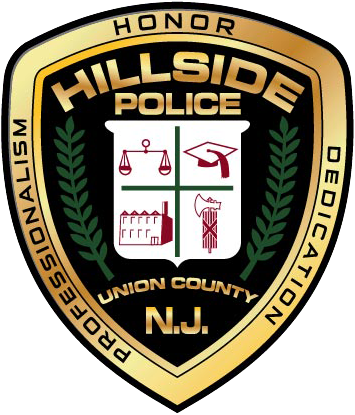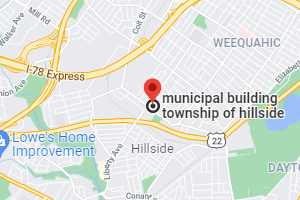Safety Tips
We can never be too careful, too prepared or too aware. Please share this information with family, friends and neighbors. The Hillside Police Department wishes everyone a safe and happy holiday season in 2016.
Driving
- Avoid driving alone or at night.
- Keep all car doors locked and windows closed while in or out of your car. Set your alarm or use an anti-theft device.
- If you must shop at night, park in a well-lighted area.
- Avoid parking next to vans, trucks with camper shells, or cars with tinted windows.
- Park as close as you can to your destination and take notice of where you parked.
- Never leave your car unoccupied with the motor running or with children inside.
- Do not leave packages or valuables on the seat of your car. This creates a temptation for thieves. If you must leave something in the car, lock it in the trunk or put it out of sight.
- Be sure to locate your keys prior to going to your car.
- Keep a secure hold on your purse, handbag and parcels. Do not put them down or on top of the car in order to open the door.
- When approaching or leaving your vehicle, be aware of your surroundings.
- Do not approach your car alone if there are suspicious people in the area.
- Ask mall or store security for an escort before leaving your shopping location.
Automated Teller Machine (ATM)
- If you must use an ATM, choose one that is located inside a police station, mall, or well-lighted location. Withdraw only the amount of cash you need.
- Protect your PIN by shielding the ATM keypad from anyone who is standing near you.
- Do not throw your ATM receipt away at the ATM location.
Shopping
- Shop during daylight hours whenever possible. If you must shop at night, go with a friend or family member.
- Dress casually and comfortably.
- Avoid wearing expensive jewelry.
- Do not carry a purse or wallet, if possible.
- Always carry your Driver License or Identification Card along with necessary cash, checks and/or a credit card you expect to use.
- Even though you are rushed and thinking about a thousand things, stay alert to your surroundings.
- Avoid carrying large amounts of cash.
- Pay for purchases with a check or credit card when possible.
- Keep cash in your front pocket.
- Notify the credit card issuer immediately if your credit card is lost, stolen or misused.
- Keep a record of all of your credit card numbers in a safe place at home.
- Be extra careful if you do carry a wallet or purse. They are the prime targets of criminals in crowded shopping areas, transportation terminals, bus stops, on buses and other rapid transit.
- Avoid overloading yourself with packages. It is important to have clear visibility and freedom of motion to avoid mishaps.
- Beware of strangers approaching you for any reason. At this time of year, "con-artists" may try various methods of distracting you with the intention of taking your money or belongings.
Children
- If possible, leave small children at home with a trusted babysitter.
- Teach your child to go to a store clerk and ask for help in case your child is separated from you.
- Teach children to stay close to you at all times while shopping.
- Never allow children to make unaccompanied trips to the restroom.
- Children should never be allowed to go to the car alone and they should never be left alone in the car.
- Teach children their full name, address and telephone number to give to police officers or mall security. Teach children to immediately inform you if a stranger is bothering them.
At Home
- Be extra cautious about locking doors and windows when you leave the house, even for a few minutes.
- When leaving home for an extended time, have a neighbor or family member watch your house and pick up your newspapers and mail.
- Indoor and outdoor lights should be on an automatic timer.
- Leave a radio or television on so the house looks and sounds occupied.
- Large displays of valuables should not be visible through the windows and doors of your home.
- Make sure doors and passageways are clear inside your home..
Strangers at Your Door
- Be aware that criminals sometimes pose as couriers delivering packages.
- It is not uncommon for criminals to take advantage of the generosity of people by soliciting donations door-to-door for charitable causes although no charity is involved.
- Ask for their identification, and find out how the donated funds will be used. If you are not satisfied, do not donate.
- Donate to a recognized charitable organization.
Hosting a Party
- Have non-alcoholic beverages available for party guests.
- Find alternative transportation for intoxicated guests.
- Arrange for an official designated driver for your party who will not drink at all.
Attending a Party
- Have something to eat before consuming alcoholic beverages.
- Eat high protein foods that will stay in your stomach longer and slow the absorption of alcohol into your system.
- Remember only time will eliminate the alcohol from your body.
- Know your safe limit.
- Never drink and drive.
Source: Los Angeles Police Department Crime Prevention Bureau
Additional resources for home crime prevention
www.crimepreventiontips.org/home-safety
PHONE SCAM ALERT***
Recently the Hillside police have taken reports of someone calling businesses (they may call residents too) in Hillside claiming to represent PSE&G. The person threatens to turn off their electricity if large payments are not made immediately. The red flag is that they demand payment via a money gram or some type of re-loadable card, such as "Green Dot." They then ask you to call them back with a redemption number so they can secure the f...unds. The fake recorded message before speaking to someone sounds very official and convincing. They may change their identity and pretend to be from some other utility in the future. Residents and business are asked to be very suspicious of these types of calls, especially when payment by a money card or gram. Please do not fall victim to this scam or ones like it. See the link below.See More
GENERAL INFORMATION
- FOLLOW THE SAME COMMON-SENSE RULES THAT YOU FOLLOW IN "REAL LIFE."
- DO NOT GIVE OUT PERSONAL INFORMATION TO STRANGERS. Never tell your computer passwords to anyone who asks for them in a chat room or by instant message. Think very carefully before giving out your real name, address, telephone number, work place, or any other bit of information that someone with evil thoughts could use to hurt you.
- NEVER GIVE OUT YOUR SOCIAL SECURITY NUMBER. If you are registering for a service that has a legitimate need for your Social Security number, provide the information through traditional mail.
- KNOW WHO YOU ARE DOING BUSINESS WITH. Check out who you do business with on the internet, just as you would if you were trying to get your lawn mower repaired, looking for someone to do your taxes, etc.
- BE VERY SELECTIVE WHO YOU GIVE YOUR CREDIT CARD NUMBER TO. Some web sites have set up systems for conducting secure credit card transactions by encrypting your information when you order merchandise. They are PROBABLY safer than sites without similar programs. Remember rule 4.
- DO NOT DOWNLOAD FILE ATTACHMENTS FROM PEOPLE YOU DO NOT KNOW. This applies both to other web sites and e-mail. Most computer viruses come in the form of executable files.
THINK BEFORE YOU POST YOUR E-MAIL ADDRESS.Otherwise your computer may end up being a dumping ground for junk-mail. If you have already become an e-mail junk-mail victim, try contacting your service provider to change your e-mail name and leave no forwarding address. If this is unsuccessful, you may need to change your service provider. Then, let only those you wish to communicate with know your new internet address.
CHILDREN AND TEENAGERS ON THE INTERNET
The internet provides children and teenagers a whole new world to explore; but, every adventure in life has its hazards. The internet is no exception. Children and teenagers may be exposed to unacceptable materials featuring sexual, violent or other objectionable subjects.
Teenagers are most likely to participate in online discussions. While most contacts through the internet are harmless, there have been reported cases of pedophiles using online and bulletin board services to arrange meetings with children and teenagers. These meetings may lead to the injury or molestation of your child. If you have reason to believe your child or teen is being lured by someone for this or other illegal purposes, contact us IMMEDIATELY.
HOW YOU CAN REDUCE THE RISK TO YOUR CHILD
- It is highly recommended that the computer(s) your child uses be located in a common area of your home -- NOT in the child's bedroom.
- There are programs designed to block or filter the materials your computer may call up. These may be purchased at most computer stores, or downloaded through the internet. While providing some help, these programs enjoy limited success. Most service providers do their best to prevent distribution of such materials through their service and some offer password protected programs to open certain categories or "chat boxes." However, the bottom line is to use basic parenting skills.
- Spend time with your children at the computer. Guide them to areas that will hold their interest and teach them to use bookmarks. Many parent, family, religious and hobby magazines list interesting web sites that target specific ages. Review the sites and bookmark those you would like your children to visit.
- If you have older children or teens, ask them to teach you about the computer and the internet. During these sessions, you may learn more than which buttons to push.
- Establish rules for using the internet, e.g.,
- Determine time of day and the length of time your children may be online
- Do not give out personal information (i.e. real name, address, phone number, etc.)
- Never agree to personally meet someone unless with the parent. That person claiming to be a 12 year old girl may be a 55 year old man!
- Never send your picture
- Do not answer messages that are inappropriate
- Tell the parent if someone insists on violating the above rules
- Watch for signals and investigate:
- Talk with your children about the sites they are using and who they are e-mailing
- Look at what they are printing (the trash can is a great source of intelligence)
- Review their bookmarks
- Check the computer's cache. The cache stores every visited page, leaving a great trail. (Kind of like checking your car's odometer the night after.) If your child is clearing the cache after every use, that may also be a clue. If he or she does not know about the cache, don't tell them! The cache should be cleared from time to time to free up space on your hard drive.
Please call the Hillside Police immediately to report someone attempting to lure or corrupt a child. Other Internet crimes or civil violations may be reported by clicking here: www.ic3.gov




